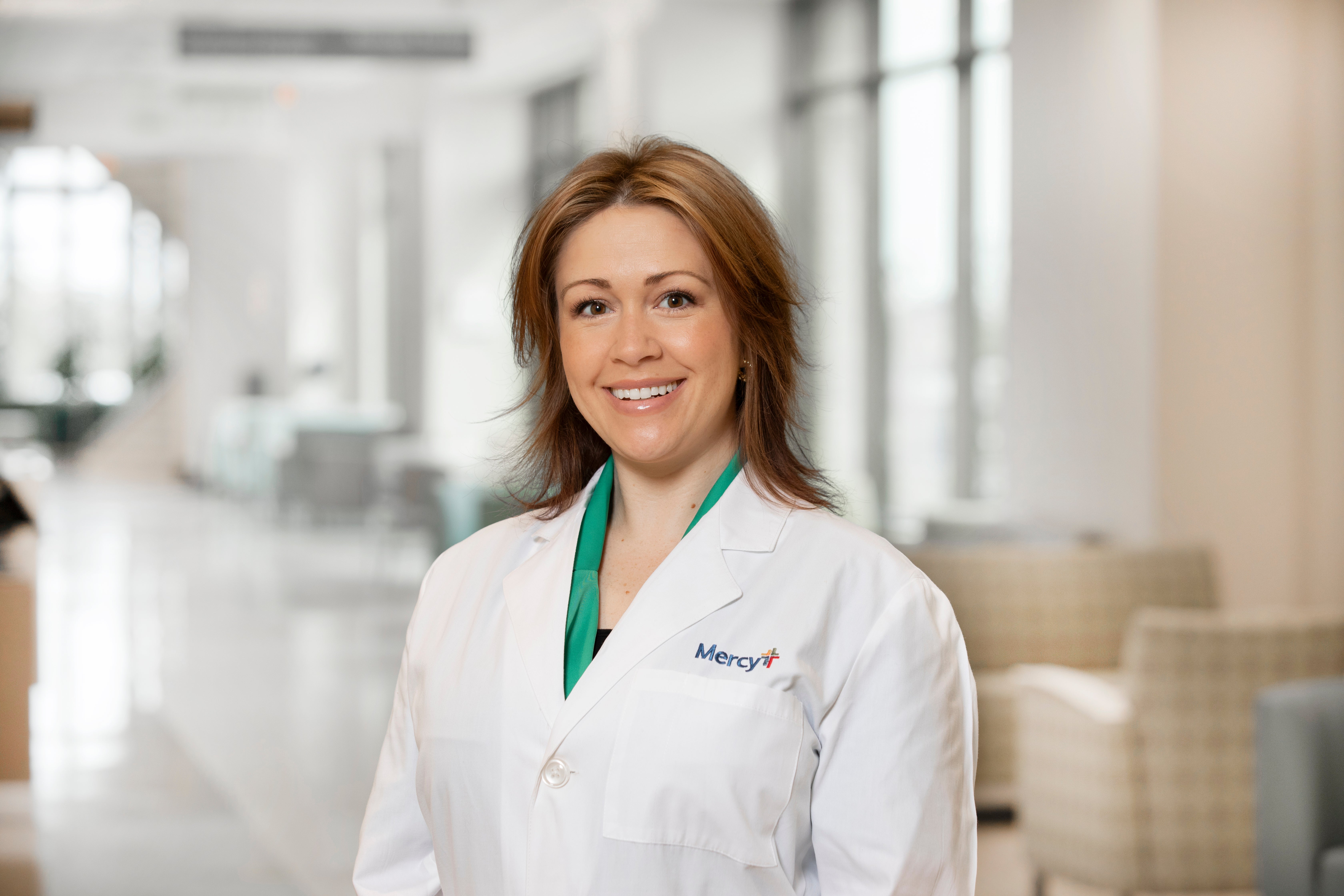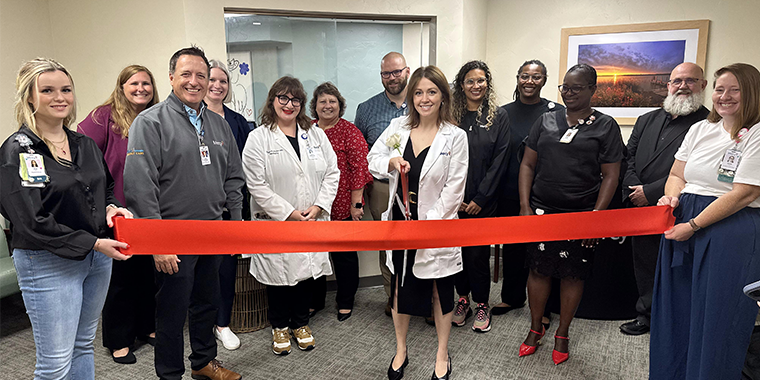When Kansas City University (KCU) – Joplin welcomed its inaugural class in 2017, Kalee Woody, DO, signed on to help launch something new. Now the Class of 2021 graduate is doing it again—establishing Oklahoma’s first full-time perinatal psychiatry program dedicated solely to caring for women through pregnancy, postpartum and beyond.
Woody’s path to psychiatry began close to home. She grew up in Bronaugh, Missouri, and earned her bachelor’s degree at Pittsburg State University. She came to KCU with plans to eventually practice full-scope family medicine in a rural community—delivering babies, treating mental health and caring for patients across generations. But during clinical rotations, she discovered a deeper fascination with the human mind and a way to support women by caring for both their physical and emotional health.
 “I’ve always been inquisitive,” she says. “Psychiatry lets me ask the tough questions to get to the root of a patient’s problem.”
“I’ve always been inquisitive,” she says. “Psychiatry lets me ask the tough questions to get to the root of a patient’s problem.”
Woody’s residency at University of Missouri introduced her to perinatal psychiatry, a field focused on mental health during pregnancy and postpartum. Mentored by Kimberly Brandt, DO, she saw how hormonal changes, stress and social pressures could intensify or trigger psychiatric symptoms, and how effective treatment could transform lives.
Historically, that kind of care has been hard to find. Because pregnant women were often excluded from research trials, physicians had little data on the safety of psychotropic medications during pregnancy. Out of caution, many stopped prescribing them altogether—sometimes with devastating results. “Stopping meds cold turkey can be dangerous,” Woody explains. “Treating a pregnant woman is no different than treating anyone else. You just do a little extra research and a lot of listening.” Today, specialists like Woody help patients and their providers weigh the risks of untreated illness against the risks of medication, aiming for full remission of symptoms and healthier outcomes for both mother and baby.
Her practice focuses on early intervention, education and access, especially for people who have faced barriers to treatment. “I see more diverse patients here,” she remarks. “Black and Hispanic mothers are at higher risk for maternal mortality, and stigma or distrust can make it even harder to seek help.”
Woody’s near-term goal is to expand outpatient services and add another practitioner to her team. She hopes to develop an intensive outpatient program that includes six weeks of group therapy, education and peer support for mothers struggling to adjust. Long-term, she envisions dedicated inpatient beds designed specifically for pregnant or postpartum patients, where women can receive care in a safe and supportive environment. She also plans to expand services to address other mental health needs that affect women, such as premenstrual dysphoric disorder, perimenopausal mood changes and trauma-related conditions.
Looking ahead, Woody hopes the field of perinatal psychiatry will continue to expand so doctors across specialties feel comfortable addressing women’s mental health during and after pregnancy. She believes that with more education and collaboration, this kind of care can become a routine part of medicine rather than something reserved for specialists.
For her, the work has come full circle. “Women often tell me, ‘I wanted this baby so badly. Why am I not enjoying it?’” she says. “Hearing that it’s not normal to suffer, but it is common—and treatable—changes everything.”




(0) Comments